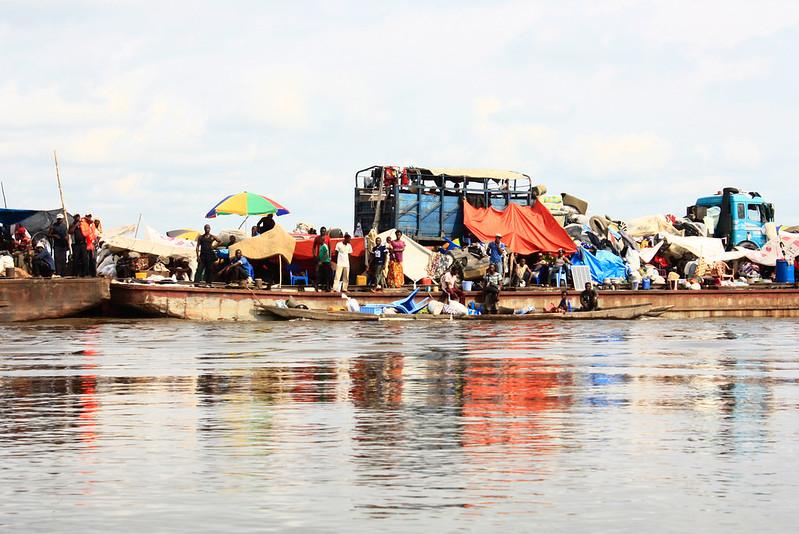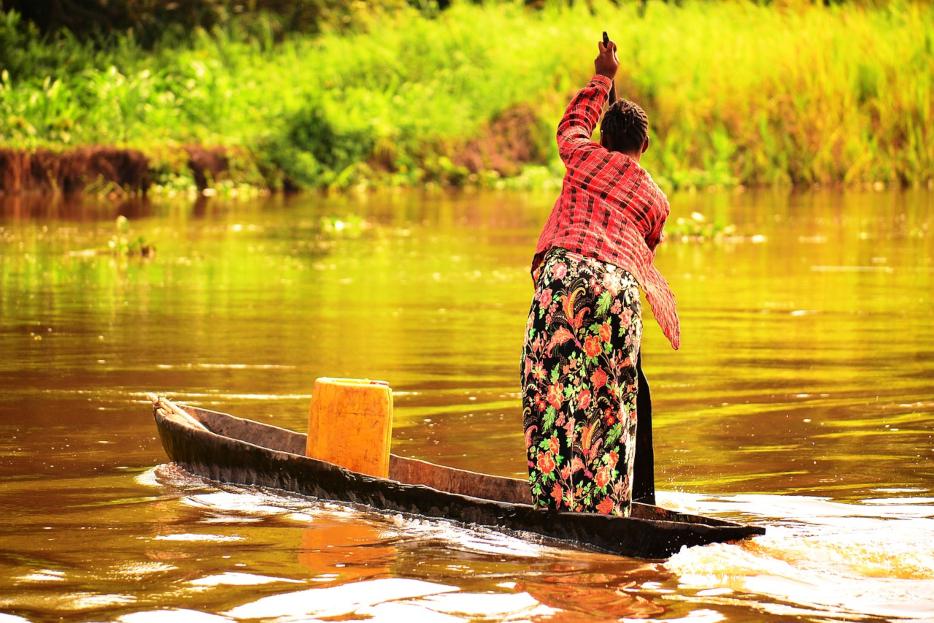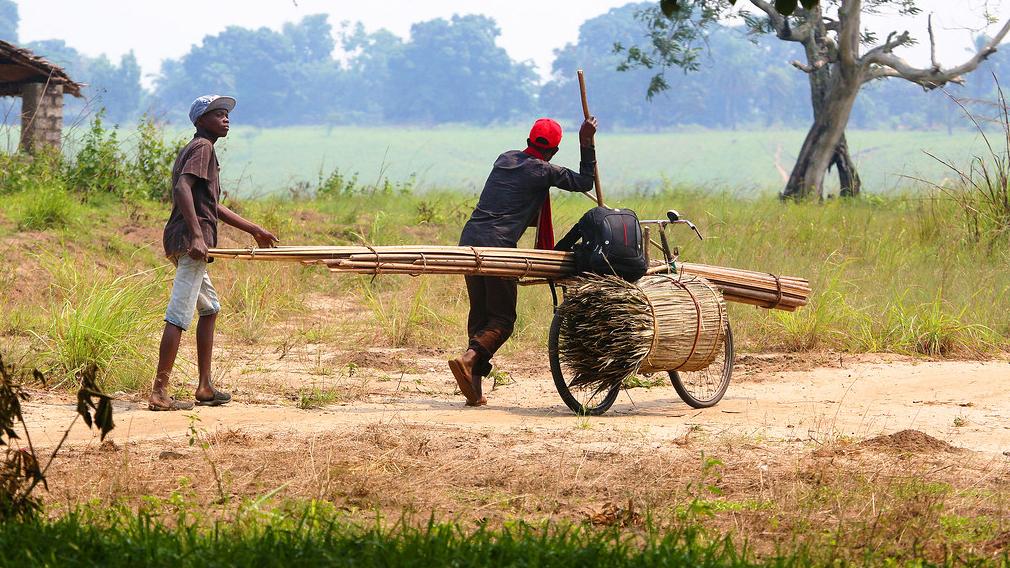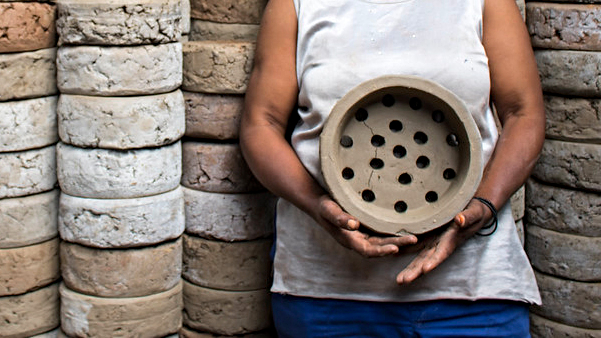A person’s water security is affected by their gender, as is their likelihood to hold decision making positions about this vital resource. To increase water security in the face of a changing climate this must change.
The demand for water is increasing and it is coming from competing needs ranging from domestic, industrial, and agricultural to hydropower and industry. The allocation of our limited water supply and how it is used is driven by socioeconomic and political factors. These include gender norms that often dictate how water resources are used, by whom, and where.
Climate change is exacerbating the challenges of water insecurity and longstanding inequalities. How people experience this depends on who they are, their location and what power they may or may not hold to make decisions on water use and its affordability.
As a result, there are calls for locally led adaptation and emerging place-based approaches in confronting climate change. These approaches continue to evolve, benefitting from the experiences of people on the frontline of climate change. Critically, this requires listening to the voices and knowledge of women and marginalised groups ‒ who often have intimate knowledge of the land, water and seasonal changes where they live, but who are often left out of decision-making.
Water insecurity intensifies during the dry season in Africa. This affects women disproportionately as gender norms mean they are typically responsible for obtaining water for use in the home. When it is in short supply, women spend more time looking for water and risk confrontation over competing demands for more limited resources.
Men are also affected by water insecurity because of the gender norms that shape their responsibility for securing income for their families. In dryland communities, for example, male pastoralists trek for days looking for enough water for livestock.
An equity perspective on water
Gender intersects with other forms of identity and social difference. This ‘intersectionality’ amplifies or reduces vulnerability. Factors such as age, education, caste, income, and ability also bring with them social norms which can create differing levels of advantage and disadvantage. Responding to the effects these combined factors have on water insecurity is essential to overcome the barriers to servicing daily water needs and to enable water security for all in a changing climate.
Water practitioners and decision-makers need to focus on delivering equity in water management. This ability to equitably meet water and sanitation needs necessitates the recognition of the intersectional causes of vulnerability to provide the support that women, men, and gender minorities require for equal access to services. An equity perspective emphasises that reaching equal outcomes in water security requires allocating different resources for different groups to address different circumstances. These include systemic barriers and discrimination that shape water access and use and the meaningful participation of women in decision-making over water resources.
Outdated stereotypes and social norms ‒ such as women being steered to traditional caregiving domestic and professional roles ‒ are at the root of gender bias and barriers in the water sector. Additionally, socio-institutional expectations and patriarchal practices limit many women’s ability to reconcile the time and energy committed to caregiving and work. Consequently, women are overrepresented in unpaid work roles (including water carriage) and underrepresented in industrial leadership or decision-making roles. Gender Blind Spots in the Water Sector – Our World
Only by addressing these multiple layers of experience and identity can more equal outcomes in water security be achieved in the face of climate change.
Shifting norms and power imbalances
To be able to adequately address these intersectionalities, there must be adequate and meaningful representation in decision making bodies. In Burkina Faso, monitoring water-related threats to inform early warning and planning is encompassed in the country’s water security approach. Women play a central role in supplying and safeguarding water resources yet are poorly represented in water management bodies and implementing policy. Social norms mean that they are generally excluded from the important role of community volunteers who undertake rainfall and groundwater monitoring and collect data. Barriers, including men not allowing their wives or daughters to attend multi-day training sessions or to be away for long periods, exemplify the socio-cultural bias holding women back from decision-making roles.
This unequal participation in decision-making around water use extends from the community level through to national mechanisms. It manifests in the lower attendance of women in meetings and a limited ability to voice their needs, viewpoints, and experiences. An improved understanding of these dynamics can help enhance the design of programming to support inclusive, thus more effective, community climate adaptation behaviours and practices.
Embracing intersectionality in water insecurity
There is a need to disaggregate ‘gender’ and ‘community’ by embracing intersectionality so that we can fully understand why certain households or individuals are more water insecure than others and act on it. Is it the age and status of an unmarried female farmer? Is it the education and literacy of young climate champions or the lived experience of elders observing changes in their environment? Or is it the influence and economic status of people upstream over those experiencing water insecurity consequences downstream?
It is critical to amplify the voices of people where changes in water conditions are first observed. We need to ask why certain voices are louder than others, and when and where we can ensure they are heard, to better understand experiences and recognise differing needs in confronting climate-induced threats to water security.
This blog is based on the work of Behaviour Adaptation for Water Security and Inclusion (BASIN). BASIN is funded by UK aid from the UK government and by the International Development Research Centre, Ottawa, Canada as part of Climate Adaptation and Resilience (CLARE) research programme.





